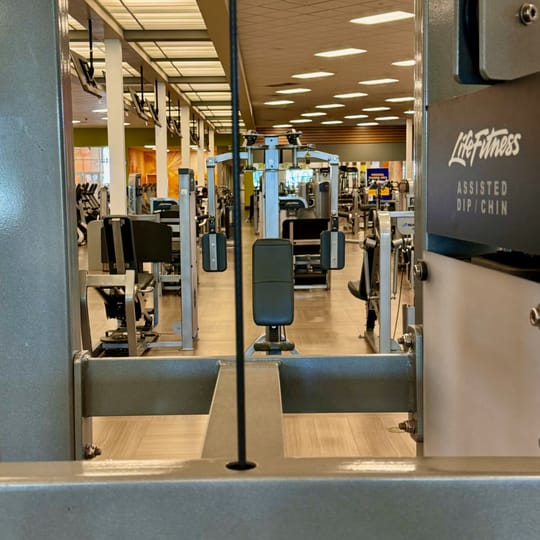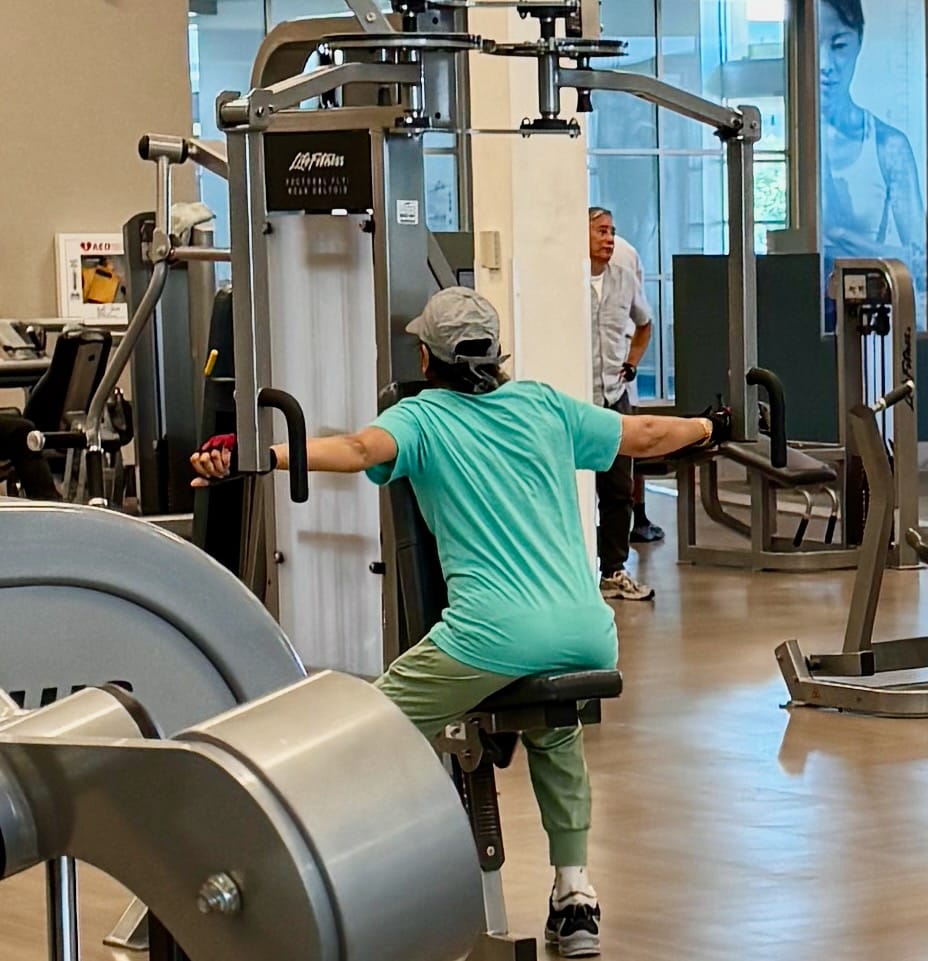
Yesterday I was
at the gym, doing pull-ups on a machine. I had finished a set and was waiting for my one-minute timer to go off, and as I stared into the landscape of treadmills and weight-lifting machines, I noticed an East Indian woman walking in my direction.
She appeared to be about 50-55 years old with salt and pepper colored hair tucked up into a baseball cap, and she had big dark eyes with dark circles. I noticed all those details later because the first thing that grabbed my attention was the fact that the right side of her body - her right leg and arm - were partially paralyzed.
For the MDs in the audience, you already know how this looks: her right arm is bent at the elbow and not moving as if there is an invisible sling holding it in place, and she has to gently swing her hips to bring her right leg forward to walk.
First of all, I could not believe that she was at the gym! That alone was incredible to me. My one-minute rest period passed, but I could not take my eyes off of her.
She walked up to the pec-dec machine, used her left hand and arm to set up the handles so she could work her rear deltoids, sat down, lifted her weaker right hand and arm onto the handle with her left hand, extended her left arm out (as in the picture below - taken with permission), and then did one slow concentrated rep after the other with her partially paralyzed right arm.

Keep in mind that just a few days ago, I wrote to you about remembering moments and not days and I told the story of a woman who made a small positive comment to me when I was a teenager that profoundly impacted me and my life.
I also shared the video about everyday leadership and lollipop moments.
So here I was, faced with a little bit of a challenge. I felt an overwhelming urge to go over, introduce myself, and try to give her a "moment." Immediately my brain started listing all the reasons I should not do this, and they came up like an AI-like generated list:
- She may not like to talk to strangers.
- Her cultural background could make this seem inappropriate.
- What if she doesn't speak English?
- It will be embarrassing and awkward if she blows me off.
- The gym is not the right place to go bugging people.
- She might think I am some dork or weirdo.
- She may get irritated because I interrupted her workout.
- What if I seem to be patronizing?
But I wrote the newsletter, so I overrode my brain's objections, and decided to walk my talk.
When she finished a set, I walked over and said: "I am sorry to bug you, but I want to tell you what an inspiration you are. It is amazing to see you not only come to the gym, but to work out like this. Seriously inspirational!"
Krishna's (her name) eyes looked right at mine, and they welled up with tears! Yes, tears. The first words out of her mouth were: "Thank you so much. It has taken me ten years to get to this point. It has been very hard."
Turns out she had a stroke as a result of severe eclampsia. Bingo. My wife Lea is a retired high-risk obstetrician, and I spent many a night listening to her on the phone dealing with preeclampsia and severe hypertension. I told her about this and the fact that I was a surgeon.
She smiled, and her eyes filled with brightness.
These moments can be created anywhere: at home with your loved ones, with your colleagues at work, or even with strangers. All you have to do is notice them, and act. Moments made into "moments" are a small but critical part of the tide that can lift all of our mental boats.
